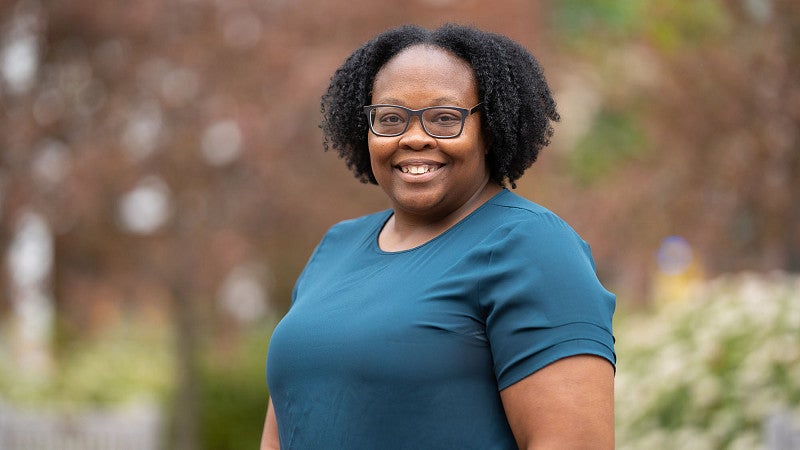Bertranna Muruthi is a professor and community-based researcher at the University of Oregon. But as a clinician and advocate she has found that it is in the translation of that work and making it accessible that has had the most impact on the lives of people.
Muruthi recently joined The Ballmer Institute for Children’s Behavioral Health as an affiliated faculty member, joining a multi-disciplinary team of University of Oregon professors and researchers to shape the academic programing of the new institute. She is an assistant professor in counseling psychology and human services in the College of Education, as well as a research scientist in both the Prevention Science Institute and the Center for Equity and Promotion.
“There’s a large need for care in Oregon, especially mental health care for children. I’ve experienced it as a clinician.” said Muruthi. “How can we adapt interventions to address the needs of marginalized families?”
Muruthi’s research focuses on culturally responsive community-based prevention and intervention programs for immigrant families, particularly those who identify as Black and/or Latinx. This includes the complexities of intersectional identities, migration and resettlement of families, and vulnerability related to resiliency factors.
“When it comes to doing this type of work in the community, we need to consider the cultural nuances that are there and create safe spaces for people of color, because of the historical and cultural practice of harming these communities” she said. “We need to dismantle performative allyship, by entering these spaces with nonjudgement and in a way that doesn’t overtake.”
As a Black child of immigrants, Muruthi said it’s important to stay present with people and listen to their needs. “I know what it’s like to not have. And also to have a need and for people to not understand that need.”
While her work with the Ballmer Institute will get under way during spring term, Muruthi’s expertise will bring an inclusive and accessible perspective that considers the varying needs of BIPOC communities in Portland, as well as the displacement of communities because of gentrification.
“People of color are told that we are strong. We can overcome. We are resilient,” said Muruthi. “We deserve to have the option of help that is not only developed for us, but also with our needs in mind.”
Through The Ballmer Institute for Children’s Behavioral Health, the University of Oregon will use scientifically supported research to improve the behavioral and mental health of Oregon’s youth by bridging the gap from clinical research to professionals and educators working at the center of Oregon’s behavioral health and mental health crisis.
A multidisciplinary team of psychologists, neuroscientist and prevention scientists will work to cultivate and train new cohorts of dedicated professionals in the behavioral health field. This includes a professional-level certificate program and an undergrad program, subject to state approval, that will create a new behavioral health workforce.

